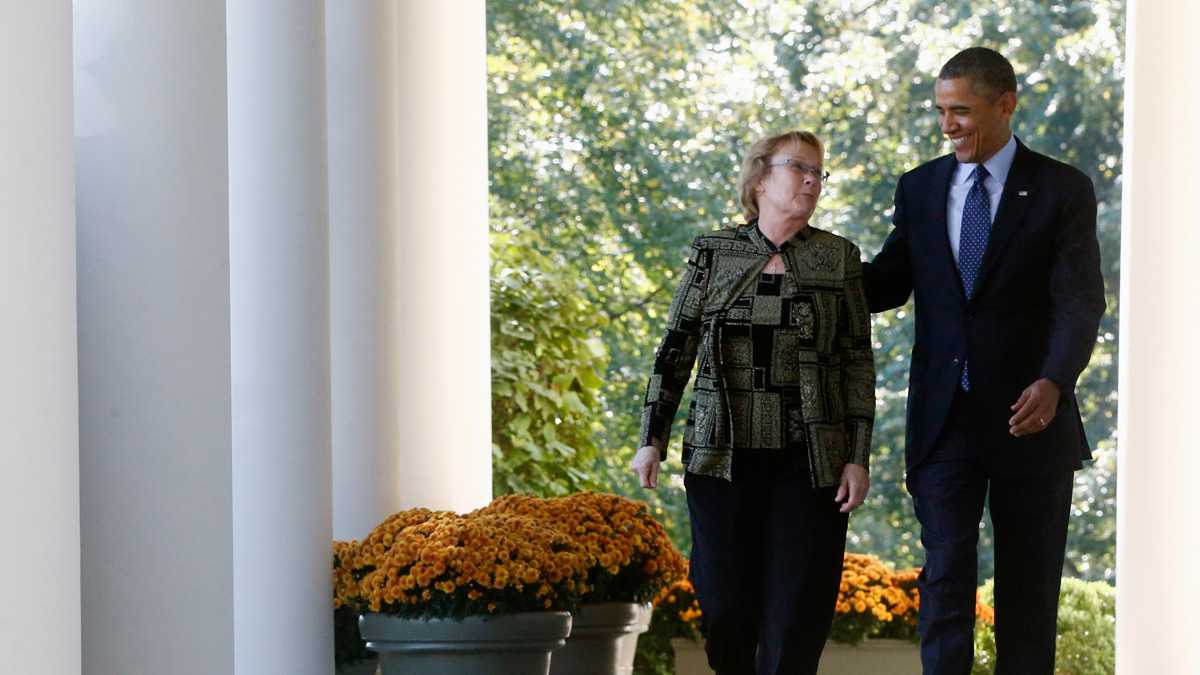Economic news looking up, state health insurance exchanges driving drop in number of uninsured
Listen
Janice Baker, the first Delaware resident to sign up for Obamacare and among the thousands who attempted to shop the exchange when it opened Oct 1, 2013, had the opportunity to meet with President Barack Obama later that month. (AP Photo/Charles Dharapak)
There’s good new on the economic front this week that suggests potentially rising incomes, increased hiring activity, and confidence that the economy is improving. We see if Americans are embracing that message with Frank Newport, editor in chief of the Gallup Poll.
New data show a significant impact of the Affordable Care Act on the uninsured state by state. Those states that set up exchanges and expanded their Medicare limits (such as Delaware) had significantly bigger drops in number of the uninsured this year than those that didn’t (such as Pennsylvania and New Jersey). Delaware now has one of the lowest uninsured rates in the country.
How is the American public looking at the economy in general these days? Newport says that consumer confidence is still in negative territory, with 56 percent still saying that the economy is getting worse rather than better, even though it has objectively improved since last fall — and it’s certainly better than it was in 2008.
And, what’s driving those consumer confidence numbers? In a word: politics. Republicans are hard-pressed to say anything good about the economy: 74 percent say it’s getting worse (while only 41 percent of Democrats agree). And 55 percent of Democrats say the economy is getting better (while only 23 percent of Republicans agree).
And, perhaps undurprisingly, it is entirely dependent on the political party of the person in the White House.
Another measure of economic well-being is Americans’ rating of their standard of living. This has been steadily getting more positive in recent months. People are generally more positive when assessing their own standard of living than when assessing the economy as a whole, said Newport.
Interestingly, Hispanics are the most positive about their standard of living: 60 percent have a positive index, while 47 percent of African-Americans and 40 percent of whites have a positive index.
Part of that dissatisfaction comes from the impact of huge student debt loads, which have received a lot of attention recently. That focus is a good thing, given new research that demonstrates just how much negative effect student loans can have on students’ well-being, even years after they graduate from college. Gallup found that individuals who graduated with debt over the last decade or two have a lower well-being than those who graduated without debt. And the steepness of the drop is proportional to the amount of debt.
WHYY is your source for fact-based, in-depth journalism and information. As a nonprofit organization, we rely on financial support from readers like you. Please give today.


